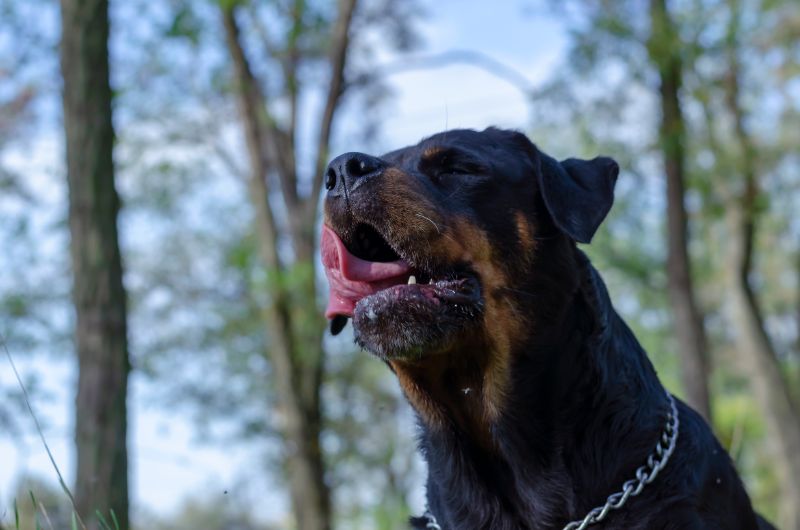Posts in Category: Seasonal Pet Care
Summer In Scruffy City: Pet Friendly Knoxville
We’re number one in southern hospitality–a fact not lost on the pets we know and love. In fact, we probably go a little over the top when our four-legged friends are concerned. Pet friendly Knoxville is the place to beat when it comes to activities to share together, and we’ve got the low-down on how and where to start and end any summer day in town.
Continue…What Foods are Safe (and Unsafe) for My Pet During the Holidays?
The holidays are just around the corner! If you’re anything like us, one of the things you’re looking forward to the most are all those festive holiday treats. Your dog(s) would love for you to know that holiday treats aren’t just for humans.
Of course, when it comes to festive treats, keeping your dog healthy and safe is our top consideration. Nobody wants to be making a surprise trip to the vet because your dog swallowed a rawhide splinter.
Continue…Allergies in Dogs (and 10 Things You Can Do at Home to Help)
Allergy season in Tennessee is upon us, whether you be human or canine. Allergies in dogs tend to manifest a little differently than they do in us, however. While people suffer from stuffy noses, sinus pressure, and itchy eyes, our pets tend to deal more with itchy, inflamed skin.
Continue…The Buzz on Pollen Allergies in Dogs
If you notice your pet scratching a lot more than usual or biting at their paws and legs, chances are they have allergies. Spring is a beautiful time for budding trees and blooming plants, but it’s also the bane of most allergy sufferers. Your pet can also experience seasonal allergies, which can cause a variety of uncomfortable symptoms.
Volunteer Veterinary Hospital is here to explain more about pollen allergies in dogs and what you can do to relieve the itchy-scratchy for your pooch:
Continue…What the Heck Is a Reverse Sneeze?
Certain dog behaviors can vacillate between alarming and confounding, and it’s not always clear when dog owners need to act. Sometimes, behaviors are temporary and resolve quickly, like a sudden upset tummy after eating something questionable. Other events that affect dogs can be more worrisome, especially if symptoms persist.
A reverse sneeze, or paroxysmal respiration, is one such episode that can be equally frightening and confusing. But what exactly are we talking about?
Continue…Start Scratching! Recognizing Seasonal Allergies in Pets

Has your pet been unusually itchy lately, pawing on their face or constantly scratching? They may be dealing with allergies. While many of us deal with the usual spring sneeze-fest, seasonal allergies in pets may manifest in ways that pet owners may not assign to allergies.
Let’s take a closer look at pet allergies, their symptoms, and how we can work together to relieve the discomfort for your fur friend.
Seasonal Allergies in Pets
Seasonal allergies are also called environmental allergies, atopy, and airborne allergies. An allergy is an overreaction to an allergen, which can include those that are present in the air or environment.
Continue…Winter Indoor Pet Activities: Let The Games Begin!

Winter has definitely made its presence known, and if you’re like us, the “Big BRRR” is keeping us inside more than we would like. Still, sometimes indoor time in the winter can be a nice chance to slow down and reconnect with what’s most important – namely, our pets!
If you’re searching for ways to engage with your pets this season, look no further. Volunteer Veterinary Hospital knows that a little inspiration is always good, so we’re diving into the best winter indoor pet activities.
Winter is Coming (Winter Tips for Senior Pets)
 Wasn’t it just summer last week? While we may still be in a bit of denial over the approach of cold weather, it doesn’t change the fact that it is looming. Our pets, especially those who are a bit older, may be facing their own set of challenges as the temperature changes. Volunteer Veterinary Hospital is here to share all of our best winter tips for senior pets as you prepare to weather the winter months.
Wasn’t it just summer last week? While we may still be in a bit of denial over the approach of cold weather, it doesn’t change the fact that it is looming. Our pets, especially those who are a bit older, may be facing their own set of challenges as the temperature changes. Volunteer Veterinary Hospital is here to share all of our best winter tips for senior pets as you prepare to weather the winter months.
Why Senior Pets are Special
Care for the senior pet is usually a bit more involved than for their younger counterparts. While the cold temperatures are a challenge for all, young and old, aging pets often have additional health concerns that can add to the difficulty. Take into account: Continue…
Is Fall Pet Safety a Thing? It Sure Is!
 We’re finally coming out of the extremely hot summer, and the items on your pet to-do list are about to change. Keeping your pet safe is just one of those enterprises that keeps you on track throughout the year, but it does differ from season to season.
We’re finally coming out of the extremely hot summer, and the items on your pet to-do list are about to change. Keeping your pet safe is just one of those enterprises that keeps you on track throughout the year, but it does differ from season to season.
Fall pet safety hinges upon paying extra close attention to certain seasonal threats that don’t pop up on your radar during, say, June. With that in mind, we’ve got some top-notch tips that will keep you and your pet going strong and healthy for the rest of the year.
A Breath of Fresh Air
Now that the sweltering heat has subsided, pets collectively look forward to spending more time outside. You can definitely enjoy being together, but even if it’s simply doing yard work out back, there are certain safety considerations for your pet. Continue…
Understanding and Preventing Pet Heat Diseases
 It’s hot, it’s sticky, and all you want to do is hide inside with the air conditioning or jump into an ice cold pool. Summer in Tennessee is not for the faint of heart, and if humans are feeling the effects of extreme heat, you can be sure our pets are also experiencing it. Because of the differences in the way our pets’ bodies handle the hot weather, they’re at greater risk for certain heat-related ailments; keeping an eye on them during the hottest part of the year is essential.
It’s hot, it’s sticky, and all you want to do is hide inside with the air conditioning or jump into an ice cold pool. Summer in Tennessee is not for the faint of heart, and if humans are feeling the effects of extreme heat, you can be sure our pets are also experiencing it. Because of the differences in the way our pets’ bodies handle the hot weather, they’re at greater risk for certain heat-related ailments; keeping an eye on them during the hottest part of the year is essential.
Let’s take a moment to learn more about pet heat diseases, including how to prevent and recognize them.
Heat Stroke
Heat stroke is defined as a life-threatening elevation in body temperature, and it’s the most dangerous of all pet heat diseases. Heat stroke usually occurs in warm weather, and it can lead to multiple organ failure and death if left untreated. Signs your pet may be experiencing heat stroke or heat exhaustion include: Continue…






